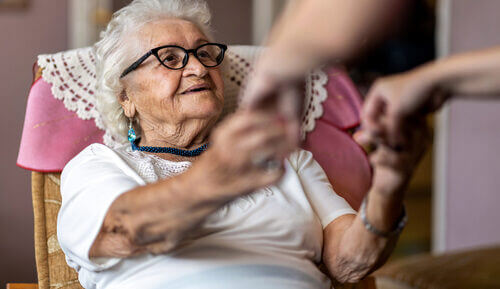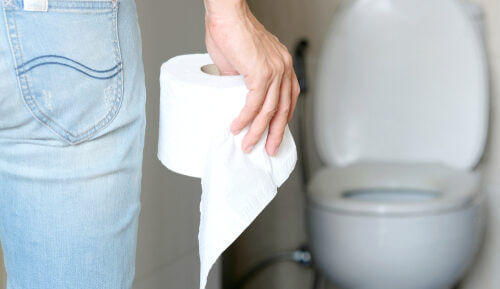
Page contents
Maintaining good personal hygiene is an important part of looking after your physical health and emotional well-being.
While everyone’s routine is different, a general idea of good hygiene might be…
- Showering or bathing regularly, with a daily wash of face, genitals, bottom and armpits.
- Brushing teeth every day.
- Brushing or combing hair every day and washing hair regularly.
- Keeping facial hair clean and tidy.
- Keeping toenails and fingernails clean and trimmed (though many people prefer their fingernails a bit long).
- Wearing clean clothes, with underwear changed every day.
Skipping showers here and there is very normal but some people can really struggle to maintain their personal hygiene, including older people.
Is personal hygiene more difficult for older people?
Some people can find maintaining good personal hygiene more difficult as they age.
Reasons can include:
- Mobility issues. It can become more difficult with age to bend or twist to wash or wipe, firmly hold objects like razors or nail clippers, lather shampoo, get in and out of the bath or stand for long enough to shower.
- Dementia can mean that the person struggles to maintain a routine, cannot remember if they have washed/brushed their teeth etc, forgets to do so or forgets how to look after their personal hygiene.
- Obesity, which can cause skin folds that are difficult to clean and make mobility a problem.
- Poor personal hygiene for older people can also be associated with some mental health conditions, such as depression. If the person is feeling lonely or without purpose, they may feel that there is no point getting washed and dressed each day.
- People living with dementia can develop a fear of washing or water. In rare cases, people can develop ablutophobia, which is a severe fear of washing oneself. There a fantastic article on ablutophobia here.
Is poor personal hygiene a sign of needing care?
If a person is really struggling with their hygiene, it may be an indicator that they can no longer look after themselves independently. Other signs might be falls, missing medication, poor diet and isolation.
To be certain, you can arrange for your loved one to have an assessment. It’s important to have this assessment if you think they might need care, because it will also mean the local authority can tell you what type of care they need and whether they’ll qualify for funding (following a separate financial means test).
Find out how to arrange a needs assessment.
Are there any risks from poor personal hygiene?
Poor personal hygiene can unfortunately have physical, mental and social consequences, such as:
- Poor self esteem
- Social isolation
- Infections such as: Colds and flu, Urinary Tracts Infections, Athlete’s foot, gum disease, gastrointestinal infections that lead to vomiting and diarrhoea, Ringworm
- Tooth decay
- Dermatitis neglecta, a skin condition caused by a build-up of dirt, sweat and bacteria
- Oral thrush
Headlice are not a sign of poor hygiene but they will get worse if left untreated.
How to help someone with personal hygiene
Identify where they’re struggling
To best know how to help your loved one you really need to know why they are struggling to maintain their personal hygiene.
They may feel able to tell you or, since it’s quite a sensitive subject, you may prefer to work it out through observation.
Look into home care
Your loved one may benefit from some professional support with personal hygiene.
Carers can come to their home and help them with washing, dressing, shaving, applying creams etc. This is called personal care.
In Scotland, personal care is free if you are assessed as needing it.
You can find out more about arranging home care on this website.
Give them incentives to look after themselves
If your loved one doesn’t see much point in looking after their hygiene and appearance, making sure to arrange regular outings with them can give them the motivation.
Boost their self esteem
If your loved one is struggling with their mental health or self esteem, they may find it really hard to be motivated to take pride in their appearance and look after themselves.
Obviously this can be very complex but a few simple ways to boost their confidence could be:
- Support them get outside, ideally to meet people but just getting out can really help.
- Take them shopping for new clothes.
- Compliment them, it doesn’t have to be about their looks but any compliments that raise their view of themselves can help overall.
- Take part in something they enjoy, even if it’s watching their favourite TV show with them, it’s lovely for them to have company with activities of their choice.
Support them to have a routine
Having a routine can support people to make looking after their personal hygiene a normal part of their day. This can be particularly important for people who live with dementia, and can also boost self esteem.
The routine might include:
Daily tasks
- Brush or comb hair
- Brush teeth (or put dentures in cleaning solution)
- Wash face
- Wash armpits and private areas
- Apply deodorant
- Put on perfume/aftershave
- Put used clothes in laundry basket (rather than on a chair)
- Apply any creams, including prescribed creams, barrier cream, moisturiser, sun cream etc
Twice weekly tasks
- Wash hair
- Have a full bath or shower
- Shave (if and where applicable)
- Change towels
Always give them autonomy over their own body
If you help your loved one with personal hygiene, always ask them if they are happy to have a wash and talk them through the process. Even if they have lost mental capacity, it’s important to listen if they say no to anything they don’t feel comfortable with.
Buy products to help
There are plentiful products you can buy to help people with limited mobility to keep clean, such as:
- Shower and bath chairs
- Baths with doors
- Long-handled sponges and flannels
- Long-handled applicators for creams and lotions
- Incontinence pads
- Barrier creams
What can I do if my loved one refuses help with their personal hygiene?
While maintaining good personal hygiene is in a person’s best interests, you can’t force them. It’s a bit different if they have lost mental capacity, but they should still have maximum autonomy over their own body.
We do have more detailed advice for if an older person is refusing personal care.


